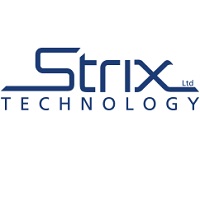Edge computing is quickly becoming a pervasive force in many industries and is transforming the way we use technology. Its impact is increasing exponentially, and it is playing a key role in the development of AI, with companies such as Kneron, IBM, Synaptic, Run:ai, and others heavily investing in the technology. It is also being used in space-tech, healthcare, and other industries such as Fortifyedge and Sidus Space.
However, with edge computing becoming more present in our lives, it is important to understand the implications and performance of apps, as well as the security concerns that come along with its use. Edge computing is no exception when it comes to these questions, but there are recent technical developments that are attempting to solve many of these problems.
WebAssembly is emerging as a potential alternative for edge application development when compared to JavaScript-based AI/ML libraries. It is portable and provides a secure sandbox runtime environment, allowing for faster container startup times than cold starting containers. WebAssembly is becoming increasingly popular across multiple industries due to its use in recognizing facial expressions and processing images or videos to improve operational efficiency.
TinyML is another key development in the realm of edge computing. It refers to the deployment of AI/ML applications on resource-constrained devices, which requires optimization approaches to be used. The ARM architecture is perfect for workloads such as AI/ML inferencing due to its better price-performance ratio than x86. Model optimization methods such as model pruning, model shrinking, and parameter quantization can help with this process. However, TinyML can come with certain boundaries when it comes to model deployment and maintenance, observability of applications, and monitoring.
The use of multiple cloud service providers (CSPs) can also pose architectural challenges when it comes to edge computing. To combat this, services that manage the orchestration and execution of distributed edge workloads are becoming increasingly popular. Tools such as Kubernetes and Docker Swarm are being used for container-based workloads, but due to their resource-intensive control planes may not be suitable for edge computing. Projects like K3S and KubeEdge are attempting to make Kubernetes more suitable for edge-specific implementations.
Federated learning is also being used in edge computing due to its ability to address distributed data sources and issues related to data volume and privacy. With this approach, data does not have to be transferred to a central server; instead, multiple distributed edge nodes learn the shared machine-learning model together. Differential privacy techniques can enhance data privacy in the future.
Finally, given the distributed nature of edge computing, traditional perimeter-based security approaches are not suitable. Zero trust architecture is a viable alternative that assumes no trust while accessing resources, authenticating and authorizing every request while continuously validating it. With more applications being deployed to the edge, this could be a key security strategy to protect against potential attacks.
In conclusion, with the rise of IoT, Metaverse, and Blockchain apps, edge computing will become increasingly important due to its ability to provide better performance, compliance and enhanced user experience for these domains. Awareness about these recent technological advancements in edge computing can help inform decisions and improve the success of implementations.











































